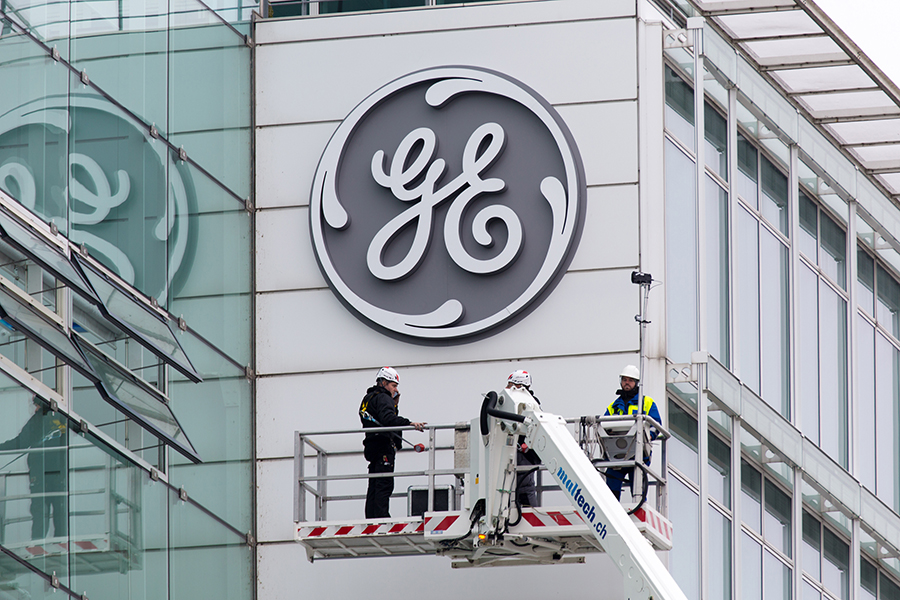General Electric Could Be Headed for Massive Restructure
CEO John Flannery didn't rule out the idea of separating the company's three core businesses.

Photo via iStock/creisinger
Like high school sweethearts approaching their first Thanksgiving home from college, General Electric may be headed for a breakup.
GE is comprised of three core businesses (power, aviation, and health care), but the company’s CEO, John Flannery, hinted that the units could be separated into independently traded entities, according to the Boston Globe. Though the New York Times reports he did not specifically identify a company breakup as a path forward in a Tuesday call, Flannery did emphasize that anything is possible and that there are “no sacred cows.”
Flannery, who took over the conglomerate in August, is no stranger to a company restructure. In November, he announced his plan to cut one in four corporate jobs and sell $20 billion-worth of assets over two years. GE’s stock is down nearly 42 percent over the last year, and the company faces an uphill battle to regain the trust of Wall Street investors. Though some financial analysts told the Globe that abandoning the conglomerate model wouldn’t serve GE well, others said that type of structure was “going the way of the dodo bird.”
But the unsettling news for GE doesn’t stop there. On Tuesday, Flannery also announced a debt of more than $6 billion owed on its fourth-quarter earnings for lingering issues related to GE Capital’s insurance portfolio. Over the next seven years, GE will pay a total of $15 billion to an insurance subsidiary.
Parts of GE, like Synchrony Bank, have been spun off in the past, according to the Associated Press, but even if Flannery sticks with its conglomerate model, sweeping change still appears imminent. According to the Times, the CEO said GE is also considering new ownership structures.
Regardless of whether GE moves forward with a colossal restructure, the industrial giant is moving further away from the company Massachusetts courted so mightily. The conglomerate’s “turnaround” has included huge financial hits, layoffs, and divisional cuts, and the new GE headquarters aren’t even predicted to open until mid-2021, two years later than anticipated.


